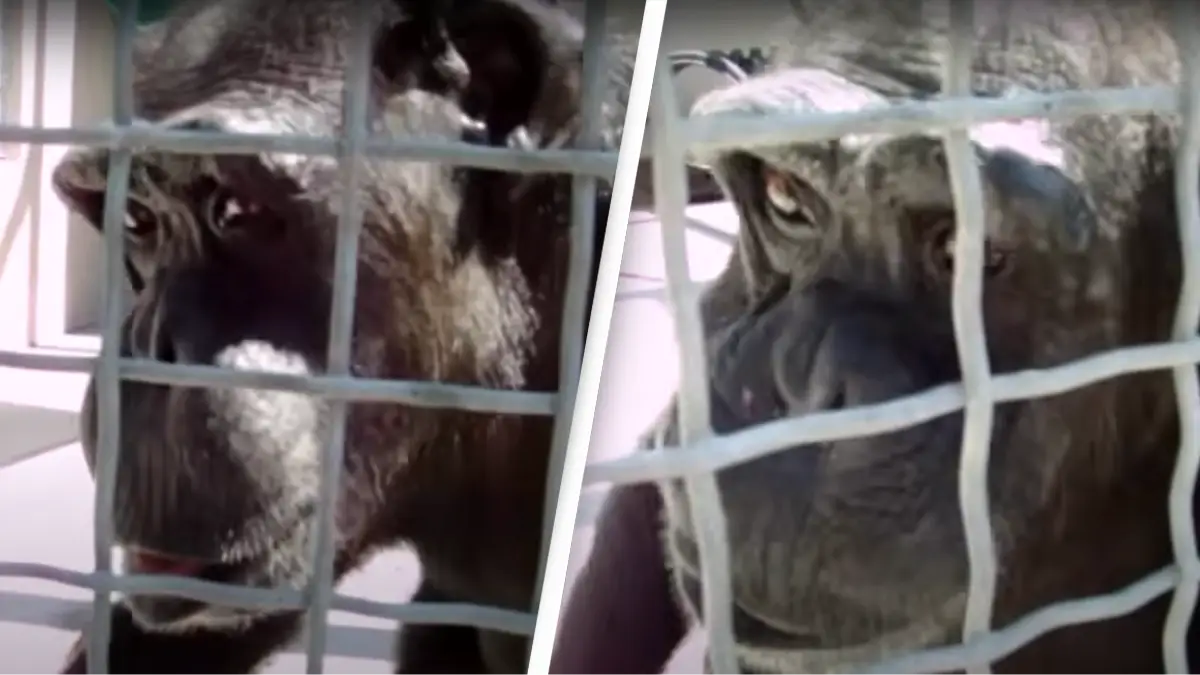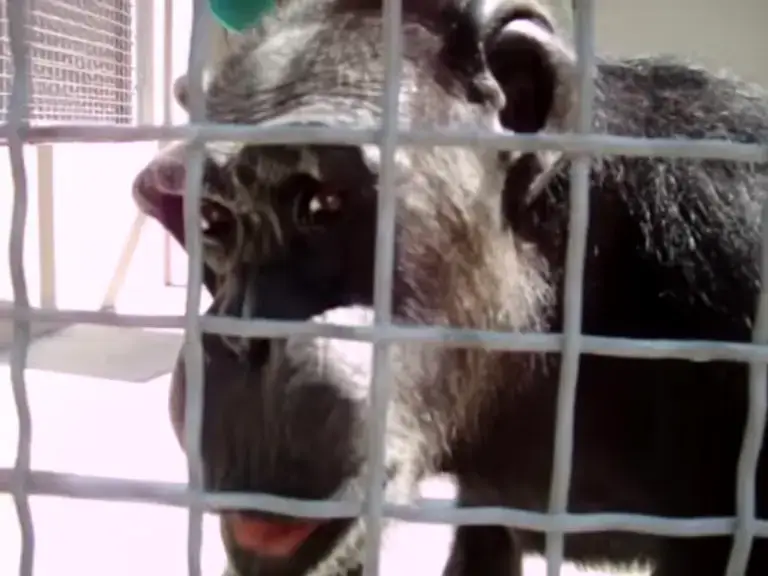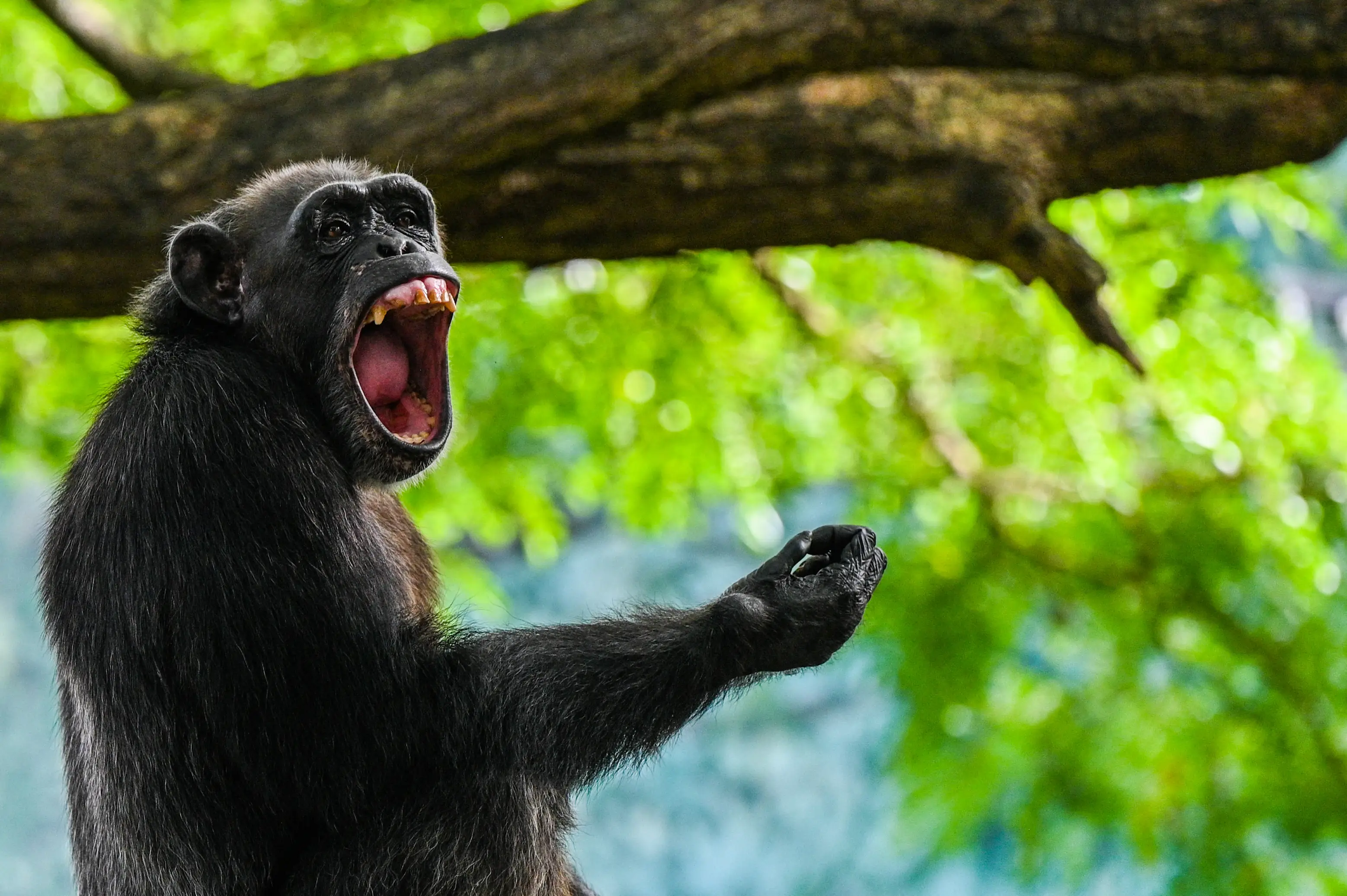
Resurfaced footage from researchers investigating chimpanzees appears to show one chimpanzee recreating human speech.
Chimpanzees are among our closest relatives in nature, sharing almost 99 percent of our DNA.
They are also highly intelligent, and have frequently shown that they are capable of communicating by using a form of sign language.
Advert
But footage from researchers in Italy in the 1960s, and another from the 2000s, shows two chimpanzees appearing to reproduce human speech.
In both cases, the chimps said the word 'mama' when they were given cues from their handlers.
Two main factors are necessary for it to 'count' as a speech - they need to physically annunciate it, and they need to understand what they are saying.
Parrots are excellent at imitation but can't comprehend what they're saying, so it doesn't count as 'speech'.
With great apes however it's more likely that they have the cognitive capability to be able to understand the word.

A research paper examining the two videos said: “Great ape vocal production capacities have been underestimated.
“Chimpanzees possess the neural building blocks necessary for speech.”
One chimp, Renata, was recorded as having 'reliably produced ‘mama'.'
The research then suggested that as 'mama' could have been one of the first words in human speech, this could suggest chimps might be able to learn.
The research team wrote: “Our data complements this picture: chimpanzees can produce the putative ‘first words’ of spoken languages.”
However, other studies conducted with chimpanzees yielded far less promising results.
A chimp called Viki was taught English for one year, after which she could only do 'mama', 'papa', 'up', and 'cup'.
Speech might feel very intuitive, but actually it is intimately connected to the physical structure of our bodies.

The muscles and tissues around our palate are key in how we produce the noises that make up the many languages humans use to communicate.
Some languages even use parts of the palate for letters which a different language may not use at all.
For example the letter 'qaaf' in Arabic, a hard sound from the throat, or 'ã' in Portuguese, which resonates through the nose, both use parts of the palate which are not used in English.
Some sounds can be difficult for non-native human speakers to master, so you can imagine the challenge for a different species.
That is not to say that chimpanzees aren't capable of advanced communication however, with the great apes able to exchange complex information between one another.
Topics: News, World News, Science, Animals
